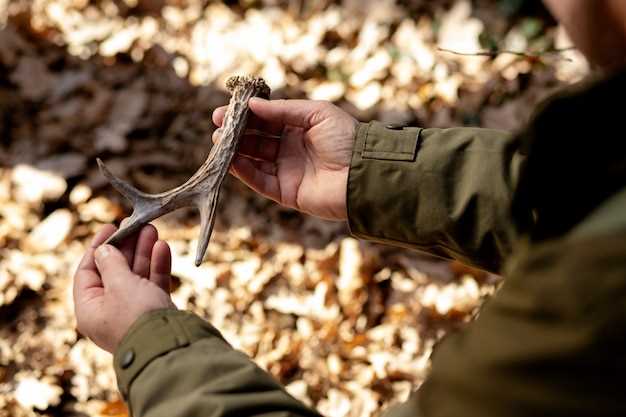
As the hunting season approaches, it’s essential to ensure that your firearm is in optimal condition. Proper prep is crucial not only for your performance but also for your safety in the field. Whether you’re an experienced hunter or a novice, taking the time to prepare your firearm can greatly enhance your hunting experience.
Start by conducting a thorough inspection of your firearm. Check for any signs of wear or damage that could hinder its performance. Clean the barrel, action, and other components to remove grime and residue that may have accumulated during previous hunts or storage. A well-maintained firearm is not just more reliable; it also provides you with greater accuracy when it matters most.
Additionally, familiarize yourself with the specific regulations and requirements related to hunting in your area. Different regions may have unique guidelines regarding firearms, so it’s imperative to stay informed. Stock up on appropriate ammunition and make sure you have all necessary accessories, such as scopes and slings, properly installed and adjusted. Proper prep ensures that you are ready to focus on the excitement of the hunt rather than worrying about your equipment.
Inspecting and Cleaning Your Firearm Before the Season
As the hunting season approaches, it’s essential to prep your firearm to ensure optimal performance and safety. The first step in this process is a thorough inspection. Examine your firearm for any signs of wear, corrosion, or damage. Pay special attention to the barrel, action, and stock. Look for cracks or loose components that could affect functionality. If you notice any issues, consult a professional for repairs.
Next, proceed to clean your firearm. Start by disassembling it according to the manufacturer’s instructions. Use a quality cleaning solvent to remove carbon buildup and fouling from the barrel and action. A bore brush can help scrub the interior, while patches will assist in wiping out residue. After cleaning, apply a light coat of gun oil to protect the metal surfaces from moisture and rust.
Don’t forget to inspect the ammunition you plan to use. Ensure it’s suitable for your firearm and check for any signs of damage. Properly store your ammunition in a cool, dry place to maintain its integrity.
Finally, take your firearm to a range once cleaning is complete. This allows you to test its function and ensure it’s properly sighted in for the upcoming hunting season. Regular maintenance not only enhances performance but also ensures safety while in the field.
Choosing the Right Ammunition for Your Hunting Needs

Selecting the appropriate ammunition is crucial for a successful hunting experience. The right ammo not only enhances your firearm’s performance but also contributes to ethical hunting practices. To make an informed choice, consider the following factors:
1. Know Your Game: Different animals require specific types of ammunition. For example, small game like rabbits may be best served with lighter, high-velocity cartridges, while larger animals like deer necessitate heavier projectiles for effective penetration and humane kills.
2. Understand Bullet Types: Bullets come in various designs, including soft point, hollow point, and full metal jacket. Soft point bullets expand upon impact, creating a larger wound channel, while hollow points are designed for maximum energy transfer. Understanding these differences helps tailor your selection to your hunting style and target.
3. Caliber Compatibility: Ensure that the ammunition matches your firearm’s caliber. Using the wrong caliber can lead to misfires or even damage to your weapon. Regular maintenance checks should be conducted to confirm that your firearm is in top condition and ready for the correct ammo type.
4. Consider Ballistics: The trajectory and energy of your ammunition are essential for shot placement. Research the ballistics of various cartridges to determine which provides the best performance at the distances you plan to hunt. High-quality ammo often results in better grouping and accuracy.
5. Test and Prep: Before hitting the field, it’s wise to test your ammunition at the range. This practice aids in familiarizing yourself with the recoil and shot behavior of your chosen rounds. Regular maintenance of both your firearm and ammunition will ensure reliability during the hunt.
6. Check Regulations: Local laws can dictate specific ammunition types for different game. Always verify regulations to remain compliant and ethical during your hunting activities.
By carefully evaluating these factors and preparing your ammunition choices in advance, you can significantly enhance your hunting success while ensuring safety and responsibility in the field.
Understanding Local Regulations and Safety Protocols

Before heading out for hunting season, it is crucial to comprehensively understand local regulations governing hunting practices in your area. Each state or region has specific laws pertaining to hunting seasons, permissible firearm types, and licensing requirements. Familiarizing yourself with these rules ensures that you comply with legal standards, preventing potential fines or legal complications.
Equally important is adhering to safety protocols to ensure a safe hunting experience for yourself and others. Always wear appropriate safety gear, such as blaze orange clothing, to enhance visibility. Additionally, familiarize yourself with the proper maintenance of your firearm, ensuring it functions correctly and safely in various conditions. Regular checks for cleanliness and operational reliability can significantly contribute to safe hunting practices.
Make it a priority to review and understand the specific hunting methods allowed in your locality, such as baiting restrictions or designated hunting areas. This knowledge not only helps you abide by the law but also fosters responsible and ethical hunting. Remember, being well-informed enhances your experience while promoting safety and sustainability in hunting practices.
